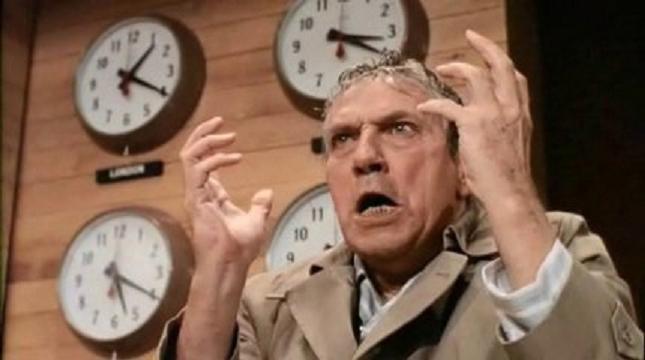httpv://www.youtube.com/watch?v=GcFuHGHfYwE
This past week we’ve had a look at some of Frye’s observations on fascism, and tomorrow is a couple of Hitler-related anniversaries, so tonight is a good time to post Leni Riefenstahl’s propaganda extravaganza Triumph of the Will (with English subtitles).
Here’s another excerpt from Frye’s remarkable, unfinished 1943 essay, “The Present Condition of the World,” where he once again considers analogies between Nazi and North American society; in this case, the incidence of propaganda. As before, the relevance of these insights to current events is startling:
. . . .[R]eliance on sense experience emphasizes the receptive and passive aspects of the mind and minimizes its active and creative power. Hence America is a happy-hunting-ground of all forms of advertisement, propaganda, and suggestions. Advertising and “publicity” are based on the fact that sense experience is involuntary and on the assumption that the mind does not possess enough selective power to resist a large number of repeated impressions. The synthetic entertainment provided by the radio and the movies is based on the normality and predictability of the public responses to certain stimuli. Education is loaded with an apparatus of magical systems and methods which are supposed to inscribe significant patterns on the students’ tabula rasa. It is important, too, to notice what a superstitious belief the average American has in the power of Nazi propaganda over the German mind: that is, he thinks of it as a mysterious poison which has seeped into the brain and is now impossible to remove, rather than as an unnatural hysteria kept up artificially by a continuous external pressure. It is important too, especially in Canada, to notice how closely this passivity of mind is associated with political apathy, a tendency to think of the government, not as the paid officials of the people, or even as merely a few more average and indifferently honest Canadians, but as an anonymous “they,” a group of Norns who sit in Thule waging war and rationing coffee. There is much less of this in the United States, but the impact of peace may revive it; and if it does, the danger that propaganda in favour of democracy will be reversed to propaganda in favour of inspired leadership is by no means a mere intellectual’s nightmare. (CW 10, 212)
